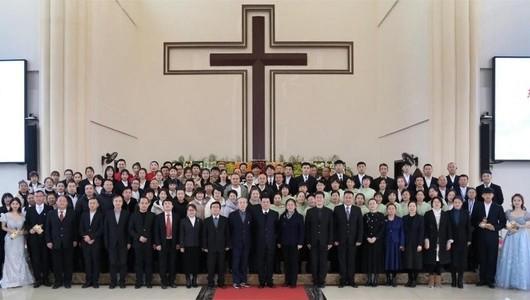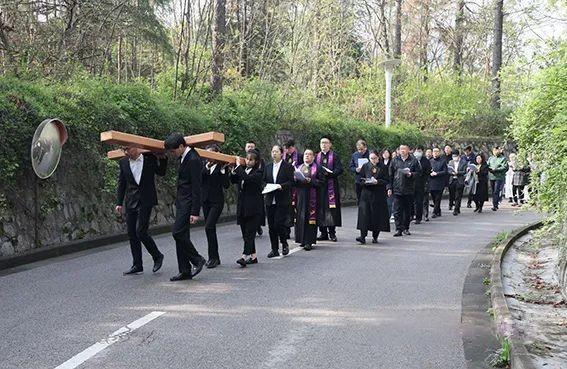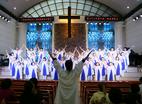As the saying goes, "healers struggle to heal themselves." Similarly, within the church, "pastors struggle to shepherd themselves" has long been a common and recurring challenge faced by many frontline pastoral workers, especially for the young ministers newly graduated from seminary.
A staff member from the Gospel Times, an online Chinese Christian newspaper, interviewed a middle-aged pastor, who has been serving for over twenty years since graduating from seminary, seeking his advice on how young theological graduates born between 1995 and 2010 (commonly known as Generation Z) can grow effectively. The pastor shared his personal experiences, offering insights and encouragement.
Setting the right mindset for service before accessing the threshing floor
Pastor Huang, who currently serves as the head pastor of a municipal CC&TSPM in North China, began his ministry journey immediately after graduating from seminary in 2002.
He noted that for many young theological students entering the field, their first test is not a matter of skills or abilities but rather their adaptation to changes in the environment. Many young theological students, accustomed to campus life, believe that church ministry should be as orderly and structured as life on campus or in the workplace, where they can work in clearly defined departments and live a routine life. However, once they enter the church, the multifaceted ministry, along with the demands of multitasking, often comes as a great shock and creates a significant gap between expectations and reality.
In response to this, Pastor Huang emphasized the importance of taking advantage of internship opportunities during seminary and participating in church service during holidays to understand the daily works of church ministry. In his view, the sooner they understand the busy and demanding nature of church work, the faster they can adapt to the rhythm of service.
Becoming a learning pastor and recharging spiritually
In recent years, Pastor Huang, in addition to mentoring theological students at his own church, has also conducted several training programs for theological students at local and neighboring CC&TSPMs. During this process, he keenly observed some real issues in the spiritual pursuits of young ministers.
He found that some young theological students had complaints about frontline ministry, saying that they were "giving much and receiving little," and that they lacked a sense of fulfillment. Some even felt that they were spiritually drained due to ministries. Moreover, as soon as they had free time, they would either play video games or sleep.
“They spend time on these meaningless activities but do not think about how to fill and comfort their own emptiness and fatigue with the word of truth. If you have not received comfort and healing from God, how can you have the strength to comfort and lead the congregants?” the pastor candidly remarked.
“I used to think that spiritual devotions and ministry were separate, so I always wanted to set aside time specifically for devotions. But as my responsibilities increased, I found that living by this principle was not very realistic,” he added, suggesting that ministry can also be part of a pastor’s spiritual practice.
“I can gain an accurate and deep understanding of God’s words in these ministries, such as preparing sermons, leading meetings, or visiting believers. Through service, I can also more deeply realize my lack of understanding of the word, which drives me to seek answers from God’s words,” he said.
Integrating love and reverence into a pastor’s life
“One of the most common issues among theological students is gathering to complain about their respective churches or express dissatisfaction with the ministry,” said Pastor Huang, who often meets with seminary classmates and has a profound understanding of this phenomenon. “In my view, this is a very unhealthy atmosphere.”
In recent years, when mentoring younger theological students, Huang has always emphasized that as ministers, they must cultivate a sense of reverence for the church and their role, which reflects their reverence and love for God. He often advises his juniors to self-reflect before complaining about their church in front of others. They should consider what efforts they have made to address the problems they see in the church. If they haven’t, they need to be vigilant and control their words, so as not to become a stumbling block for others.
Pastor Huang has also worked consistently in recent years to create a more accepting and supportive environment for the growth of young theological students by promoting communication, providing ministry opportunities, and increasing fellowship frequency within CC&TSPMs and church leadership teams.
Conclusion — Being an example to all in Christ
As a seasoned pastor approaching 50, Pastor Huang stated that he entered seminary at 19 and started ministry at 23, with his life goal to become a role model.
“When I was young, I always wanted to rely on a role model, to find a pastoral mentor in the church to help me grow. However, I later realized that people are limited and have various problems. So, I decided to become a role model myself, and I ultimately found that path in the Lord Jesus.”
Because of this, he encourages young theological students from Generation Z to seize the most precious time in their lives to return to the life of Christ, find guidance for growth through prayer, and experience miraculous growth in the field of ministry. “No matter where you are, your twenties are full of potential. As long as you walk in Christ, you can grow in wisdom and stature and become an example for others.”
- Edited & translated by Abigail Wu













